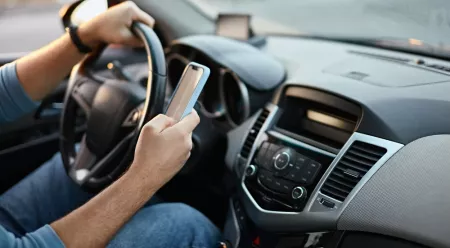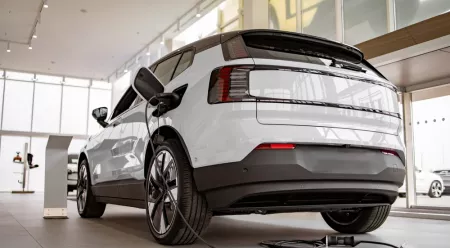If you’re in the market for a new ride, you might be tempted to buy a shiny new ride from your local dealership.
As enticing as these new models may be, there’s a slight catch: they have a hefty price tag! Because of this, buying a new car isn’t feasible for everyone in Canada.
Thankfully, that doesn’t mean that you have to go without a ride — there are several alternatives that are more cost-effective. For instance, you can save some of your hard-earned cash by buying a used car with accident history in Canada.
But, before you make any commitments, we suggest researching the pros and cons of buying a vehicle with an accident history. Doing this will give a better understanding of the process and help you decide if a vehicle with accident history is the right choice for you.
Continue reading to learn more about some of the pros and cons of buying a vehicle with accident history along with some handful of tips for insuring your ride.
START A QUOTE
Contact a Surex insurance advisor to save on car insurance today!
We know how pricey car insurance can be in Canada. Thankfully, it doesn’t have to be!
At Surex, our number one goal is to help you find and save on insurance coverage in Canada. Our experienced insurance brokers can help you find the best, cheapest coverage for your brand new truck, lightly used sedan, or anything in between.
Contact one of our licensed insurance advisors today to get ten personalized quotes in ten minutes or less (number of quotes varies by location).
Used cars with accident history — what are the pros?
Here are a handful of the positive aspects of purchasing a used car with accident history in Canada:
More affordable than used models in good condition
As we mentioned earlier, cars with accident history tend to be more affordable than used vehicles that are in pristine condition. Divers typically save about $500 when they buy damaged cars with accident history (compared to a used car in good condition). It’s worth noting that this price will vary depending on the model, condition, age, etc.
There are several reasons these vehicles are noticeably cheaper. One example is that the previous owner doesn’t have the time, energy or inclination to repair the car. Another example would be that the previous owner no longer wants the vehicle, and they’d like to move on to a different model.
Saving money during the vehicle purchasing process gives you the freedom to spend your cash on things like fuel, car insurance or winter tires.
Slower depreciation rate
As you likely know, new cars depreciate faster than used cars.
Although the rumours about car depreciation rates aren’t always accurate, drivers should know that most vehicles will lose about 60% of their total value within the first five years. After five years, the car depreciates at a much slower rate. The depreciation rate is even slower when you buy wrecked cars due to the fact that they’ve already lost the majority of their value.
So, if you choose to sell the damaged vehicle that you bought, you won’t face as much of a loss (in comparison to selling a car that hasn’t been damaged in the past).
Click here to learn which vehicles retain the most resale value in Canada.
Used cars with accident history — what are the cons?
Here are some of the cons of buying a car with accident history in Canada:
Hidden issues
It’s not uncommon for used cars that have been damaged to have hidden (or unreported) issues. Some sellers choose to hide these issues in hopes of selling the vehicle faster or at a higher price. In contrast, some sellers may simply be unaware of the problem.
Certain issues, like hidden engine damage, can be extremely inconvenient and time-consuming to repair. Additionally, driving a car with hidden damage can put you in harm’s way. For instance, if your car engine ceases to work while you’re driving in a busy area, you could cause an accident.
Although there’s no way to guarantee that there are no hidden problems with your prospective vehicle, you can minimize the risk by using the following tips:
- Get the vehicle inspected by a licensed mechanic — Working with a licensed mechanic ensures the previous repairs were done correctly and can pinpoint unaddressed issues.
- Confirm title status — The vehicle will have a “clean title” if it’s not been in a major incident or a “salvage title” if it’s a write off (more on this below).
- Ask the previous owner LOTS of questions — Doing this gives you a chance to clarify if the vehicle needs any kind of maintenance or repairs.
- Test driving the vehicle beforehand — Test driving the car is the best way to get up-close and personal with the vehicle before committing to a final decision.
Potentially higher maintenance costs
After being in an accident cars can become unpredictable — because of this, vehicles with an accident history generally cost more to maintain. You never know what could happen to your ride in the future (remember the hidden engine problem example?). It’s also hard to plan or prepare for issues if you don’t know that they are going to occur.
We find that most drivers spend more time, energy, and money maintaining used vehicles with accident history (compared to used cars in good condition).
However, it’s worth noting that the level of required maintenance will be influenced by the type and severity of the damage.
For instance, if you bought a two-year-old used car with several aesthetic issues (scratches, dents, cracks in the windshield, etc.), you likely won’t have to spend much additional time maintaining the body of the car.
On the other hand, if you purchased a ten-year-old vehicle that was in a serious fender-bender, you may spend more energy maintaining your car (in comparison to a driver with a used car in good condition).
Insuring a car with accident history
Whether you’re buying a brand new ride or a used vehicle, you need to buy car insurance before you hit the road!
If you’re buying a previously written off car, it will have a salvage title. A salvage title proves that a vehicle was in a serious accident and has been written off by the owner’s car insurance company.
A car with a salvage title is only roadworthy once it’s been inspected and repaired by a licensed mechanic. Additionally, cars with salvage titles are more of a risk than pristine vehicles, so you’ll likely have to pay more for coverage. Drivers should take this into account before making a final decision.



